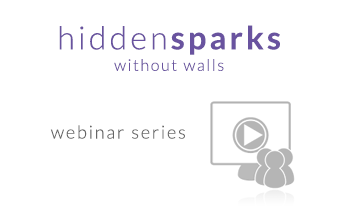Differentiating Instruction in Math Prek-2nd Grade
Join this webinar to unpack the foundational ideas for differentiation in math and examine related strategies Applying relevant learning trajectories, participants will analyze instructional strategies for differentiation such as menus, centers, choice boards, tiered problems, parallel tasks, open questions, and anchor problems. …
Differentiating Instruction in Math Grades 3-6
Join this webinar to unpack the foundational ideas for differentiation in math and examine related strategies Applying relevant learning trajectories, participants will analyze instructional strategies for differentiation such as menus, centers, choice boards, tiered problems, parallel tasks, open questions, and anchor problems. …
Literacy GPS: Assessments and Progress Monitoring for Literacy Instruction
Join this webinar to learn about a variety of methods for assessing the five components of reading; phonemic awareness, phonics, fluency, vocabulary, and comprehension, to analyze and inform instruction and then to monitor progress. This workshop is for K-8 classroom teachers, reading …

Involving Students in the Conversation about Learning Goals
Learn practical strategies for sharing learning goals with students and incorporating goal setting into the classroom. Gain tools to involve students in reflecting on their progress as a means to facilitate individual growth and increase student agency.

The Fundamentals of Universal Design for Learning
Universal Design for Learning (UDL) is a research-based framework that teachers use to design lessons that reduce barriers and increase access to learning for all students. This webinar will introduce the main ideas and key concepts of UDL, which can be used …

Reading and the Brain – Comprehension
To be a successful reader, your students’ brains are required to orchestrate a variety of cognitive domains for each part of the reading process. In this workshop you will have the opportunity to look into what cognitive domains are required for reading …

Learning Gemara- A Task Analysis
Learning Gemara is a complex task involving many cognitive functions and academic skills. Lack of experience or a deficiency in any one of these functions or skills can make the experience of learning Gemara an overwhelming task for a student. In this …

Reading and the Brain – Decoding and Fluency
To be a successful reader, your students’ brains are required to orchestrate a variety of cognitive domains for each part of the reading process. In this workshop you will have the opportunity to look into what cognitive domains are required for reading …

Taking Assessments to the Next Level
Assessments can and ought to be an essential component of the student learning process. This webinar utilizes psychological research to shed light on how educators may maximize the opportunities that assessments offer to foster student growth, in addition to evaluating their progress. …

ABCs of Advocacy: How to be your child’s best advocate
If you have discovered that your child has difficulties with learning or paying attention, or you are beginning to suspect that he or she does, you might be wondering what you can do to make sure that your child is getting the …

Fostering Essential Traits for Learning – growth mindset, grit and motivation
Current cognitive research has shown that there are three specific nonacademic skills that are essential for student success. In this workshop participants will learn about the research on Grit, Growth Mindset, and Motivation and how this information can be translated into classroom …

The Math/Brain Connection: Using Current Cognitive Research to Inform Instruction for Struggling Math Learners
The results of ground-breaking brain research now play a role in early detection of future math learning disabilities allowing for targeted early intervention. This workshop will look at the spatial ordering system which governs qualitative number sense, how challenges manifest in the …

Memory
Why is my child able to remember the names of all the students in his class and all the teachers in his school, but he can’t recall the multiplication facts? Or, why does my daughter remember all her cousins’ and aunts’ and …

Meta Cognition and Self-Advocacy
Students who struggle in school are often very receptive to understanding their individual learning styles: where they have strengths, what are their weaknesses, and which strategies help them become successful in school. This HSWOW webinar will focus on different ways to teach …

Helping Students Discover How They Learn
Helping children to understand how they learn is as important, if not more important, than the content they are learning. In this webinar, we will explore ways to incorporate “learning about learning” into lessons we are already teaching and also discuss developing …

Kriyah: Developing an Effective Management Plan for Building Kriyah Skills
By understanding the neurodevelopmental demands of Kriyah, participants will be able to pinpoint specific weaknesses and develop a comprehensive management plan for building skills. Considerations for second language learning (decoding only) will also be discussed.

How To Talk To Children About Their Learning Strengths and Struggles
Helping children understand their unique strengths and struggles is an essential part of teaching and learning. Utilizing short case scenarios, we will discuss such topics as how to help a child understand complex ideas regarding their learning; How to personalize learning as …

Analyzing A Lesson
Participants will use the neuro-developmental constructs to examine which constructs are primarily demanded in one of their lessons. They will also prepare strategies for their students who struggle with the primary neuro-developmental demands of the lesson. The class will analyze a lesson …

An Overview of How We Learn (Repeat)
This course will discuss the various pathways of learning and how they interact with each other to form a learning profile of strengths and weaknesses. The pathways include attention, memory, language, organization, social cognition, neuro-motor functioning and higher-order thinking. Utilizing hands-on activities, …
